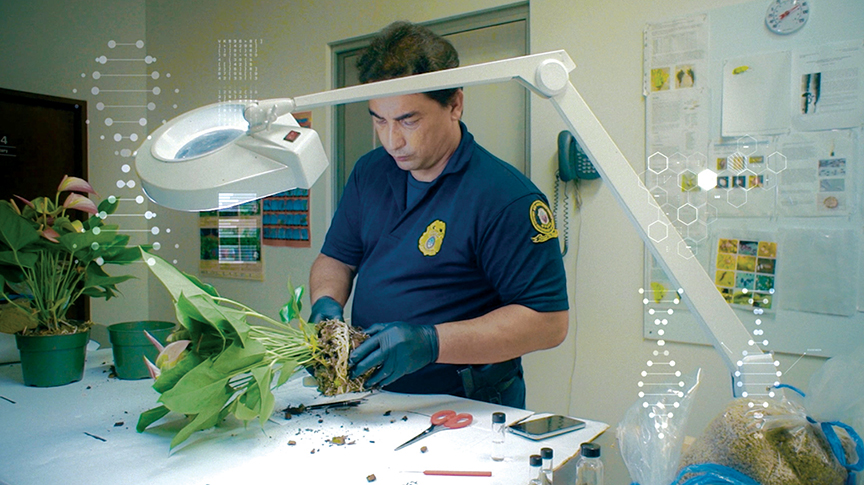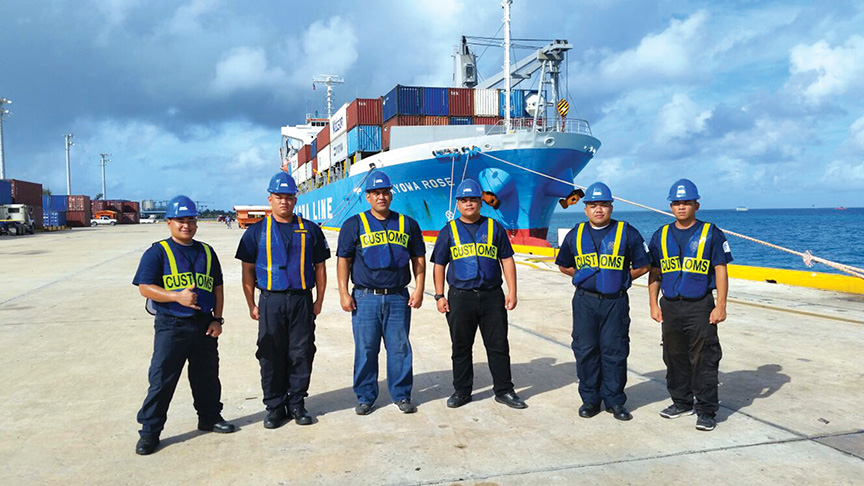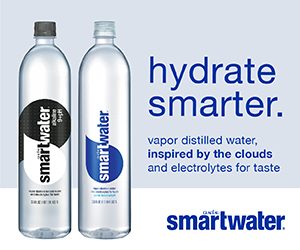A Guam Business Magazine series that connects businesses to government agencies

Photo courtesy of Guam Customs and Quarantine Agency
Guam Customs and
Quarantine Agency
- Phone: (671) 475-6202
- Email: [email protected]
- Website: cqa.guam.gov
- Governing legislation: 5GCA Chapter 3 § 3127 and Chapter 73
- No. of staff: 113 uniformed CQA officers, 18 civilian support personal (fiscal 2017 Citizen Centric Report)
Functions and services
“As Guam’s first line of defense, the women and men of the Customs and Quarantine Agency are on the front lines protecting our island, people and resources and ensuring the physical and economic security of Guam. CQA enforces the laws and regulations of numerous federal and local agencies and is responsible for protecting our borders, securing ports of entry and facilitating trade, commerce and travel. Our mission is to enable and improve commerce while protecting our island, our people and our resources.”
Details regarding importation
Guam CQA strives to follow federal regulations and guidelines laid out by the U.S. Customs and Border Protection. More information about importation can be found at cpb.gov.
Prohibited items
In addition to federal regulations, Guam law also prohibits the following:
- printed matters or pictures of a seditious nature or of an obscene or immoral character; and
- any article, manufactured or for manufacture or sale, or adulterated, misbranded or deleterious food, drugs, medicines and liquors.
Notable fees
- 4% use tax rate on all imported items
- Maritime cargo rate: $5 for the first 4,000 pounds plus 0.0012 times every pound thereafter
- Air cargo rate: $5 for the first 100 pounds + 0.0012 times every pound thereafter
Agency challenges
“Some of the biggest challenges at the Customs and Quarantine Agency is being able to meet increasing mission requirements while operating in a resource constraint environment as an organization that needs to improve technologically and organizationally.
Our immediate challenge is the reduced number of officers. Our current manpower is lower than it was 20 years ago. This, coupled with the increased number of legal mandates that the agency is required to enforce, causes an imbalance in the need to facilitate commerce and travel for the public. The organization also faces challenges in automating its processes to better protect the island and its borders. This too requires significant resources. Lastly, the organization requires some personnel restructuring, most especially in its civilian support staff, to better affect mission accomplishment.
With the mission to protect our island, people and resources while facilitating commerce and travel, the agency continues to actively work toward recruiting additional officers, identifying and securing a management information system and working on organizational restructuring. We want and need to do this to provide better service coverage to our customers and improve border security for Guam, the region and the United States.”
Source: Guam Customs and Quarantine Agency, Guam Code Annotated

Photo courtesy of Commonwealth of the Northern Mariana Islands Division of Customs
Commonwealth of the Northern Mariana Islands Division of Customs
- Phone: (670) 664-1610
- Email: [email protected]
- Website: cnmidof.net
- Governing legislation: Title 70-10.1 Customs Service Regulations, CNMI Law
- No. of staff: 94 as of Dec. 6
Functions and services
“CNMI Customs Service, a division under the Department of Finance, is responsible for the facilitation of trade and travel, collection of revenue through the enforcement of excise taxes on imported goods and identifying and seizing prohibited items imported to and exported from the Commonwealth of the Northern Marianas Islands. NMI Customs safeguards all ports of entry which include the seaport, airport and U.S. Postal, from any importation of contrabands, illegal drugs, other harmful elements and dutiable commodities. … NMI Customs applies risk management practices to prevent the importation of harmful elements and other contraband.”
Details regarding importation
- All imported goods for sale must have an invoice and must be declared.
- Items imported for personal use must be accompanied by, at a minimum, a packing list with the estimated value of the imported items.
- All goods and commodities are subject to inspection.
- Goods or commodities will not be released to importers who have outstanding liabilities.
- Goods or commodities from low-risk countries can be pre-cleared to reduce the clearance period.
Prohibited items
- Controlled substances
- Currency or other forms of negotiating instruments with a value of more than $10,000, unless reported prior to entry
- Firearms and ammunition
- Goods, merchandise or commodities that violate international or U.S. copyright or patent laws
- Cigarette packs that do not bear a warning label
- Motor vehicles not covered by federal certification
- Used tires
- Banned pesticides
Notable fees
There is an excise tax on the sale, use, lease or rental of goods, commodities, resources or merchandise in the Commonwealth. An additional environmental beautification tax of 0.42% is added on top of the excise tax.
Excise tax rates vary, depending on the commodities. Notable rates include:
- agricultural commodities, food, hygiene products, toiletries and prescription drugs share a 1% ad valorem rate;
- cigarettes at $3.75 for every 20 cigarettes or a fractional equivalent;
- liquid fuel at 15¢ per gallon;
- jewelry, leather goods, precious metals, precious or semi-precious stones, passenger vehicles worth no more than $30,000 and boats and yachts exceeding $500,000 in value, all at 5.75%; and
- tobacco and tobacco substitutes at 60%.
A more complete list of commodities and their excise tax rate can be found on the CNMI Customs website.
Agency challenges
“Similar to other Customs administrations, the major challenges for the NMI Customs are the undervalued and undeclared imported goods, especially the high tax rate commodities such as cigarettes, tobacco and liquor. CNMI Customs imposes a fine for undervaluation, undeclaration or underdeclaration of these imported goods. The amount of the fine is 100% of the value of the goods sold in the local market.”
The NMI continues to closely guard our island borders against the importation of narcotics. We continue to utilize X-ray machines and dog detector units, and we physically inspect incoming mail, parcels and cargoes at all ports.”
















